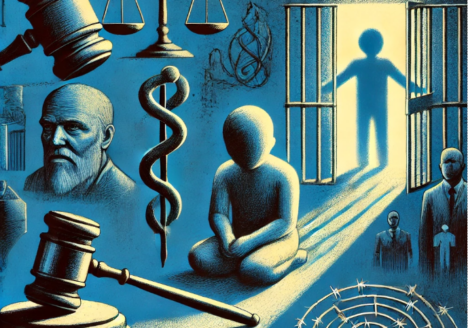
Table of Contents
ToggleIntroduction
Juvenile detention centers are established with the goal of rehabilitating young people, giving them a chance to correct their paths and reintegrate into society. However, the reality often falls short of these ideals, with many centers failing to provide even the most basic standards of safety and care. At Collins & Collins, P.C., we are dedicated to addressing the systemic failures that jeopardize the well-being of detained youth.
The Crisis in Juvenile Detention Centers
Across the United States, juvenile detention centers face a multitude of challenges that compromise the safety and well-being of young inmates:
– Solitary Confinement and Isolation: The use of solitary confinement has been shown to inflict severe psychological damage, including anxiety, depression, and suicidal thoughts. Despite these dangers, it remains a common practice used as a control measure.
– Physical Abuse and Use of Force: Excessive restraints and physical punishment are prevalent, often exacerbated by inadequate staff training and a lack of oversight.
– Unsanitary and Unsafe Living Conditions: Overcrowding and poor maintenance lead to unsanitary conditions that pose health risks and degrade the dignity of young inmates.
– Lack of Mental Health Support: Insufficient mental health resources result in neglect of the complex psychological needs of detained youth, sometimes leading to the inappropriate use of medications to manage behavior.
Notable Cases Highlighting Systemic Issues
Several high-profile incidents have brought to light the severe consequences of these systemic issues:
– Rikers Island Juvenile Detention Center (New York): Known for its harsh conditions and use of solitary confinement, leading to a landmark lawsuit and subsequent reforms.
– The Florida Juvenile Justice Scandal: Investigations uncovered widespread physical abuse and neglect, sparking statewide reforms.
– California Lawsuit on Solitary Confinement: This legal action brought significant changes to how solitary confinement is used in juvenile facilities in California, setting a precedent for other states.
Consequences of Abuse and Neglect
The impact of the conditions within juvenile detention centers is profound and can have lasting effects:
– Mental Health Deterioration: The trauma of abuse and isolation often results in long-term psychological issues.
– Cycle of Criminalization: Abusive treatment increases the likelihood of recidivism, as negative experiences in detention centers can entrench resentment and distrust towards authority.
– Developmental Delays: Lack of educational and social interactions during detention hinders personal development and reintegration prospects.
Reforming Juvenile Detention Centers: Steps Toward Change
Collins & Collins, P.C. advocates for comprehensive reforms through litigation to transform juvenile detention centers into environments that truly aim to rehabilitate:
– Abolishing Solitary Confinement for Juveniles: We support legislative efforts to ban this harmful practice.
– Increasing Access to Mental Health Services: Ensuring that detained youth have access to adequate psychological care is crucial.
– Ensuring Safe, Hygienic Living Conditions: Regular inspections and accountability measures must be enforced to uphold safety and hygiene standards.
– Implementing Oversight and Accountability Measures: Independent oversight committees and whistleblower protections are essential to foster transparency and prevent abuse.
Conclusion
Juvenile detention centers must prioritize the rehabilitation and humane treatment of young people. Collins & Collins, P.C. is committed to leading the charge for systemic reforms that protect the rights and dignity of detained youth. Litigation is the fastest route to reform. Sadly, the institutions and corporations running juvenile detention are motivated purely by profit and convenience. Together, we can make a significant difference in transforming these facilities into safe spaces that support, rather than harm, vulnerable young individuals.
